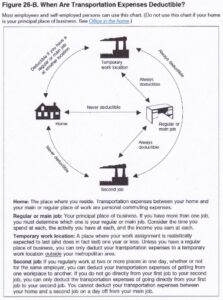
Ultimately, this reliance will mean less time spent on manual processes and more time back in your pocket. Let them know you’re finding better and more efficient ways to work so that you can spend more time strategizing with them about the future of their business. Some of the accounting tools you’re already using, like Karbon for practice management, are already using GPT-technology to help you work faster and smarter. But what this fails to take into consideration is the accountant’s role as a strategist with human experiences, an understanding of nuances, passion, and resilience.
Without an aligned team, all the work you do on your business—your vision, mission, strategy—is wasted. It’s only if you clearly communicate your firm’s goals that your entire team can work together towards achieving them. You can’t reap the benefits of AI without working alongside it and you can’t run a successful remote accounting team without successful collaboration. Similarly, data storytelling is going to be a valuable skill—in other words, making the numbers talk.
Trend 1: Will technology change the accountant’s role?
Throughout this article, we have explored the definition of industry accounting, discussed its importance, highlighted key concepts, and delved into its role in financial reporting. We have also explored the challenges faced by industry accountants and discussed industry-specific accounting standards and practices. From healthcare to manufacturing, technology to real estate, each industry requires tailored accounting practices to accurately capture its unique financial operations. Whether it’s the healthcare, manufacturing, technology, or retail sector, each industry has its own unique set of accounting practices and challenges. Industry accounting professionals are trained to navigate these complexities and tailor financial reporting to meet industry-specific needs. By understanding the intricacies of a given industry, accountants can ensure accurate and relevant financial information is provided to stakeholders, including shareholders, investors, lenders, and regulatory bodies.
Soft skills will increase in importance (while technology handles transactions)
Now that you understand the fundamentals of how do annuities work – nationwide these two accounting career paths, let’s evaluate the pros and cons of working in public vs. private accounting. However, if you stay in public accounting past senior manager, it may be challenging to find a position in industry that pays the salary that you are used to in public accounting. You also will be behind in developing certain skills gained in industry in comparison to those that left as seniors and managers and are already familiar with accounting software such as NetSuite or Quickbooks. Bookkeeping focuses on recording and organizing financial data, including tasks, such as invoicing, billing, payroll and reconciling transactions.
Pros & Cons of Working in Public Accounting
Private accountants work across every industry and sector, making this a stable career choice no matter where you live and work. According to leading labor market analytics firm EMSI, jobs for accountants and auditors are expected to grow 5% by 2031. While the culture at every company and firm can be different, industry is generally considered a lower stress environment with more flexibility when compared to public accounting, which can be stressful in order to meet client deadlines. Additionally, industry usually doesn’t require as much travel as public accounting and generally offers a better work life balance.

- However, if you stay in public accounting past senior manager, it may be challenging to find a position in industry that pays the salary that you are used to in public accounting.
- With that said, if you are generally happy with your job and at your firm but just don’t see yourself sticking with the partner route like myself, I recommend leaving as either a senior or a manager.
- The fact that tech can already perform many of the manual and repetitive accounting processes that used to suck up your time is something to embrace sooner rather than later.
- To speed up action, you may hire accounting professionals or purchase accounting software to ensure accurate financial audits and reporting.
For example, in industries such as healthcare or construction, there are specific accounting principles and practices related to revenue recognition, project costing, and regulatory compliance. Accountants in these industries must be well-versed in these specialized accounting standards to ensure accurate financial reporting. Industry accounting is a specialized field that plays a crucial role in accurately reporting financial information within specific sectors or industries. It encompasses unique accounting practices, standards, and regulations tailored to address the distinct characteristics and requirements of each writing off stock industry. Through industry accounting, businesses can provide stakeholders with accurate and meaningful financial information that reflects the economic reality of their specific industry.
When I started reflecting on my own personal career goals, I took a look cash book format around my office in M&A due diligence and realized most of the partners worked late nights, traveled frequently, and were under constant stress to bring in more business.
Alas, this is also the jumping-off point for many finance professionals looking to make a more hands-on commercial contribution. The opportunity to drive strategy, cherry-pick your sector (Property? Healthcare? Retail?) and satisfy a slumbering entrepreneurial spirit can make the grass surrounding qualified roles in industry look invitingly greener. Practice advances at a pace, so you’ll be playing catch up to more experienced colleagues should you wish to return. It’s demanding, diverse work and many love the blue-streak buzz of servicing customers across a sweeping range of sectors. To succeed in industry, you must possess the ability to convey complex financial concepts and data in terms that non-finance colleagues can understand.
“If we look at the risk profile of accountants, it’s probably 9 out of 10,” says Drew Fenton CPA, Director of Specialist Insurance Broking firm Fenton Green & Co. For example, UK-based firm, Linford Grey has designed theirs to maximize efficiency so that the team is afforded a harmonious work life balance, no matter where they’re based. If you and your team are spending too much time performing manual tasks, reassess your tech stack. And if you have a problem that no tool can seem to solve, why not see if you can solve it yourself? In fact, the majority (58%) of accounting professionals aren’t worried that AI will replace them.
Tax professionals include CPAs, attorneys, accountants, brokers, financial planners and more. Their primary job is to help clients with their taxes so they can avoid paying too much or too little in federal income or state income taxes. Accounting information exposes your company’s financial performance; it tells whether you’re making a profit or just running into losses at the end of the day.







